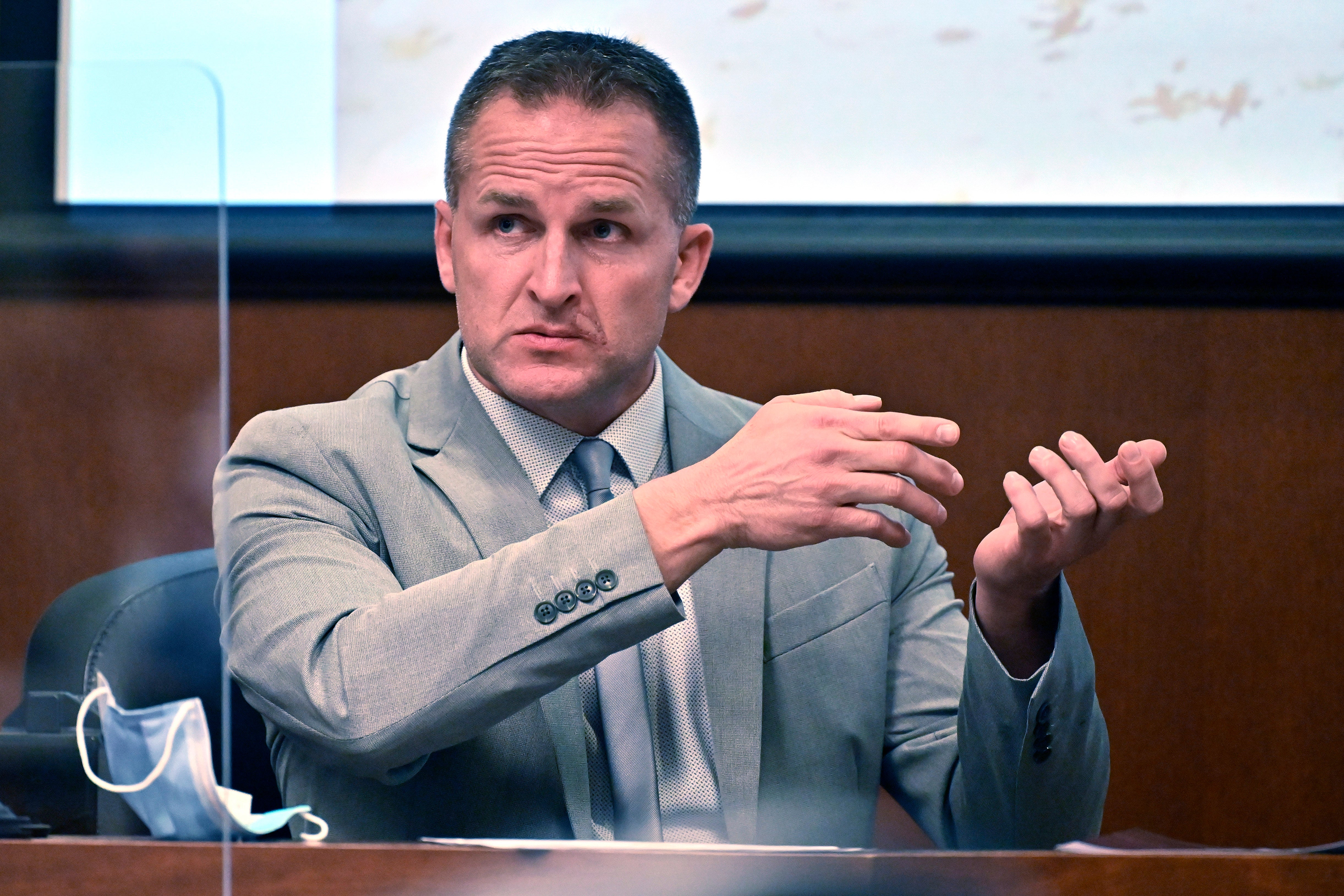Ex-cop who fired into Breonna Taylor’s apartment in flawed, fatal raid goes on trial again
A former Louisville police officer who fired into Breonna Taylor’s apartment the night she was killed is going on trial in federal court this week

Your support helps us to tell the story
From reproductive rights to climate change to Big Tech, The Independent is on the ground when the story is developing. Whether it's investigating the financials of Elon Musk's pro-Trump PAC or producing our latest documentary, 'The A Word', which shines a light on the American women fighting for reproductive rights, we know how important it is to parse out the facts from the messaging.
At such a critical moment in US history, we need reporters on the ground. Your donation allows us to keep sending journalists to speak to both sides of the story.
The Independent is trusted by Americans across the entire political spectrum. And unlike many other quality news outlets, we choose not to lock Americans out of our reporting and analysis with paywalls. We believe quality journalism should be available to everyone, paid for by those who can afford it.
Your support makes all the difference.A former Louisville police officer who fired into Breonna Taylor’s apartment the night she was killed is going on trial in federal court this week for violating Taylor’s civil rights during the botched 2020 raid.
The trial will mark a second attempt by prosecutors to convict Brett Hankison for his actions on the night Taylor, a 26-year-old Black woman, was shot to death by police after they knocked down the door of her apartment. Hankison was acquitted in a state trial last year.
Jury selection in the federal case is set to begin Monday.
Taylor was shot to death by officers who knocked down her door while executing a search warrant, which was later found to be flawed. Taylor’s boyfriend fired a shot that hit one of the officers as they came through the door, and they returned fire, striking Taylor in her hallway multiple times.
Hankison is one of four officers who were charged by the U.S. Department of Justice last year with violating Taylor’s civil rights.
Taylor’s killing along with George Floyd’s death at the hands of Minnesota police in 2020 ignited protests that summer around the country over racial injustice and police brutality. U.S. Attorney General Merrick Garland announced the federal indictments in the Taylor case in August, remarking that Taylor “should be alive today.”
Another former officer, Kelly Goodlett, has pleaded guilty to a federal conspiracy charge. Former detective Joshua Jaynes and former Sgt. Kyle Meany are charged with conspiring to deprive Taylor of her civil rights. Jaynes and Meany are set to be tried together next year. Goodlett is expected to testify against them. Hankison is the only officer of the four who was present at the March 13, 2020, raid.
The night of the raid, Hankison’s 10 shots didn’t hit anyone as he fired his handgun through Taylor’s glass slider door and bedroom window, but his bullets flew into neighboring apartments with people inside.
He took the witness stand at his 2022 trial in state court and said after a fellow officer was shot in the leg, he moved away from the front door and to the side of the apartment, where he began firing.
“I thought I could put rounds through that bedroom window and stop the threat,” Hankison said.
Investigators determined only one round was fired by Taylor’s boyfriend, who said he thought an intruder was breaking in. The other 32 bullets fired in the raid came from police.
During the state trial, when asked if he did anything wrong during the raid, Hankison replied, “absolutely not,” even though he acknowledged firing into the window and patio door. As for Taylor, he said, “She didn’t need to die that night.” That prompted Breonna Taylor’s mother to leave the courtroom.
A jury cleared Hankison of wanton endangerment charges at that trial.
U.S. District Judge Rebecca Grady Jennings postponed Hankison’s federal trial about two months after Hankison’s lawyers asked for more time to process massive amounts of evidence turned over by federal prosecutors.
The federal trial is expected to last two to three weeks.